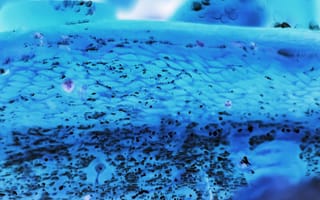
Although Elon Musk famously called artificial intelligence “our biggest existential threat,” AI can do a lot to help humanity too, like fighting cancer.
And that’s exactly what NYC healthcare startup Paige is doing. The company has trained its computer vision AI model with troves of clinical imaging data to be able to spot cancerous cells. This helps pathologists diagnose cancers quicker and more accurately at a lower cost. From there, pathologists can come up with informed treatment recommendations.
Paige started in early 2018, and now it’s getting ready for its next stage of growth. On Wednesday, the company announced the closing of its $45 million Series B funding round. The round was led by Healthcare Venture Partners, and brings Paige’s total funding to $70 million.
“This influx in funding reflects the acknowledgment and recognition that Paige’s technology is ready for prime time,” Paige CEO Leo Grady said in a statement. “We believe that AI will have a transformative impact on pathology and cancer care by improving pathology quality, throughput, costs and by enabling new biomarkers and diagnostics. We are committed to offering these powerful technologies to hospitals around the world, and helping biopharma more effectively treat their patients and bring new therapies to market faster.”
Paige hopes to use the new money to fuel its expansion in Europe, Brazil and Canada. It is also looking to accelerate its commercial efforts in the U.S.
Earlier in the year, the FDA granted Paige a Breakthrough Device designation. This designation is given to technologies that have potential to provide better diagnosis or treatment to serious diseases.
With the new funding raised this week, Paige says it’ll work with the FDA to get clearance for new cancer-fighting products, starting with prostate cancer.
“Paige exemplifies the benefits of digital pathology and represents the bright future of AI-driven medical diagnosis,” said Jeff Lightcap of Healthcare Venture Partners in a statement. “As hospitals embark on digital transformations, they will face challenges associated with these transitions. We believe Paige addresses many of these issues by enhancing the ability of clinical teams and pathologists to collaborate. We’re confident in Paige’s future and believe they will continue to develop cutting-edge technologies that enable pathology departments to transform their practices, which have changed little in the last century.”



